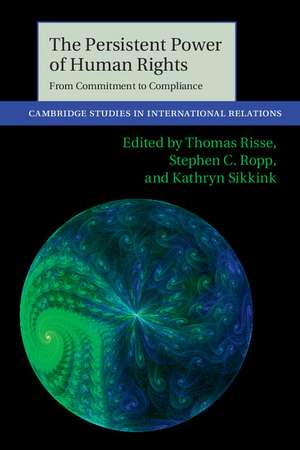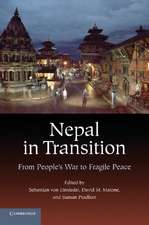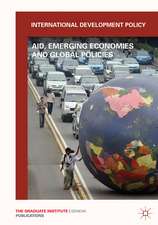The Persistent Power of Human Rights: From Commitment to Compliance: Cambridge Studies in International Relations, cartea 126
Editat de Thomas Risse, Stephen C. Ropp, Kathryn Sikkinken Limba Engleză Paperback – 6 mar 2013
| Toate formatele și edițiile | Preț | Express |
|---|---|---|
| Paperback (1) | 275.85 lei 6-8 săpt. | |
| Cambridge University Press – 6 mar 2013 | 275.85 lei 6-8 săpt. | |
| Hardback (1) | 701.94 lei 6-8 săpt. | |
| Cambridge University Press – 6 mar 2013 | 701.94 lei 6-8 săpt. |
Din seria Cambridge Studies in International Relations
-
 Preț: 198.90 lei
Preț: 198.90 lei -
 Preț: 232.37 lei
Preț: 232.37 lei -
 Preț: 237.58 lei
Preț: 237.58 lei -
 Preț: 210.70 lei
Preț: 210.70 lei -
 Preț: 190.01 lei
Preț: 190.01 lei -
 Preț: 200.87 lei
Preț: 200.87 lei - 8%
 Preț: 401.24 lei
Preț: 401.24 lei -
 Preț: 229.56 lei
Preț: 229.56 lei -
 Preț: 265.70 lei
Preț: 265.70 lei -
 Preț: 200.09 lei
Preț: 200.09 lei -
 Preț: 207.82 lei
Preț: 207.82 lei -
 Preț: 158.77 lei
Preț: 158.77 lei -
 Preț: 162.49 lei
Preț: 162.49 lei -
 Preț: 231.47 lei
Preț: 231.47 lei - 11%
 Preț: 584.77 lei
Preț: 584.77 lei -
 Preț: 241.77 lei
Preț: 241.77 lei -
 Preț: 287.87 lei
Preț: 287.87 lei -
 Preț: 209.13 lei
Preț: 209.13 lei -
 Preț: 299.23 lei
Preț: 299.23 lei -
 Preț: 286.13 lei
Preț: 286.13 lei -
 Preț: 287.87 lei
Preț: 287.87 lei - 11%
 Preț: 641.67 lei
Preț: 641.67 lei - 11%
 Preț: 585.78 lei
Preț: 585.78 lei - 14%
 Preț: 843.23 lei
Preț: 843.23 lei -
 Preț: 303.80 lei
Preț: 303.80 lei -
 Preț: 200.79 lei
Preț: 200.79 lei -
 Preț: 284.78 lei
Preț: 284.78 lei -
 Preț: 279.76 lei
Preț: 279.76 lei -
 Preț: 285.75 lei
Preț: 285.75 lei -
 Preț: 324.24 lei
Preț: 324.24 lei -
 Preț: 290.16 lei
Preț: 290.16 lei -
 Preț: 291.69 lei
Preț: 291.69 lei -
 Preț: 392.52 lei
Preț: 392.52 lei -
 Preț: 315.99 lei
Preț: 315.99 lei
Preț: 275.85 lei
Nou
Puncte Express: 414
Preț estimativ în valută:
52.79€ • 56.44$ • 44.01£
52.79€ • 56.44$ • 44.01£
Carte tipărită la comandă
Livrare economică 17 aprilie-01 mai
Preluare comenzi: 021 569.72.76
Specificații
ISBN-13: 9781107609365
ISBN-10: 1107609364
Pagini: 374
Ilustrații: 12 b/w illus. 15 tables
Dimensiuni: 150 x 226 x 20 mm
Greutate: 0.59 kg
Ediția:New.
Editura: Cambridge University Press
Colecția Cambridge University Press
Seria Cambridge Studies in International Relations
Locul publicării:New York, United States
ISBN-10: 1107609364
Pagini: 374
Ilustrații: 12 b/w illus. 15 tables
Dimensiuni: 150 x 226 x 20 mm
Greutate: 0.59 kg
Ediția:New.
Editura: Cambridge University Press
Colecția Cambridge University Press
Seria Cambridge Studies in International Relations
Locul publicării:New York, United States
Cuprins
Part I. Introduction and Stock-Taking: 1. Introduction and overview Thomas Risse and Stephen C. Ropp; 2. The power of human rights a decade after: from euphoria to contestation? Anja Jetschke and Andrea Liese; 3. From ratification to compliance: quantitative evidence on the spiral model Beth A. Simmons; Part II. Conceptual and Methodological Issues: 4. Human rights in areas of limited statehood: the new agenda Tanja A. Börzel and Thomas Risse; 5. The 'compliance gap' and the efficacy of international human rights institutions Xinyuan Dai; 6. Social mechanisms to promote international human rights: complementary or contradictory? Ryan Goodman and Derek Jinks; Part III. From Ratification to Compliance: States Revisited: 7. The normative context of human rights criticism: treaty ratification and UN mechanisms Ann Marie Clark; 8. The United States and torture: does the spiral model work? Kathryn Sikkink; 9. Resisting the power of human rights: the People's Republic of China Katrin Kinzelbach; 10. The 'Arab Spring' and the spiral model: Tunisia and Morocco Vera van Hüllen; Part IV. From Commitment to Compliance: Companies, Rebel, Individuals: 11. Encouraging greater compliance: local networks and the United Nations Global Compact Wagaki Mwangi, Lothar Rieth and Hans Peter Schmitz; 12. Business and human rights: how corporate norm violators become norm entrepreneurs Nicole Deitelhoff and Klaus Dieter Wolf; 13. Taming of the warlords: commitment and compliance by armed opposition groups in civil wars Hyeran Jo and Katherine Bryant; 14. Changing hearts and minds: sexual politics and human rights Alison Brysk; 15. Conclusions Thomas Risse and Kathryn Sikkink.
Recenzii
'A superb collection of essays epitomizing the new wave of human rights scholarship that is more evaluative, inter-disciplinary, quantitative, critical and engaged. Essential reading for anyone seeking to understand how, when and why the international human rights system works (and doesn't work).' Philip G. Alston, John Norton Pomeroy Professor of Law, New York University
'The Persistent Power of Human Rights shows the persistent imagination of a group of scholars who developed the spiral model more than a decade ago. The revisited version is as significant for our understanding of social norms as the 1999 book was - a must for students of human rights.' Michael Zürn, Director at the WZB and Professor of International Relations, Freie Universität Berlin
'The Persistent Power of Human Rights shows the persistent imagination of a group of scholars who developed the spiral model more than a decade ago. The revisited version is as significant for our understanding of social norms as the 1999 book was - a must for students of human rights.' Michael Zürn, Director at the WZB and Professor of International Relations, Freie Universität Berlin
Descriere
This book offers a unique combination of quantitative and qualitative research arguing for the persistent power of human rights norms.














